Word identification Phonics Worksheets for Ages 6-8
9 filtered results
-
From - To
Unlock the potential of young readers with our Word Identification Phonics Worksheets designed for ages 6-8. These engaging and educational resources help children develop essential reading skills by focusing on phonics and word recognition. Each worksheet is crafted to make learning fun and effective, ensuring children grasp the fundamentals of phonetic patterns and vocabulary. With activities tailored to their skill level, kids can boost their confidence and expand their reading capabilities. Ideal for both classroom environments and homeschooling, our worksheets provide everything needed for success in early literacy development. Begin the journey to fluent reading today!
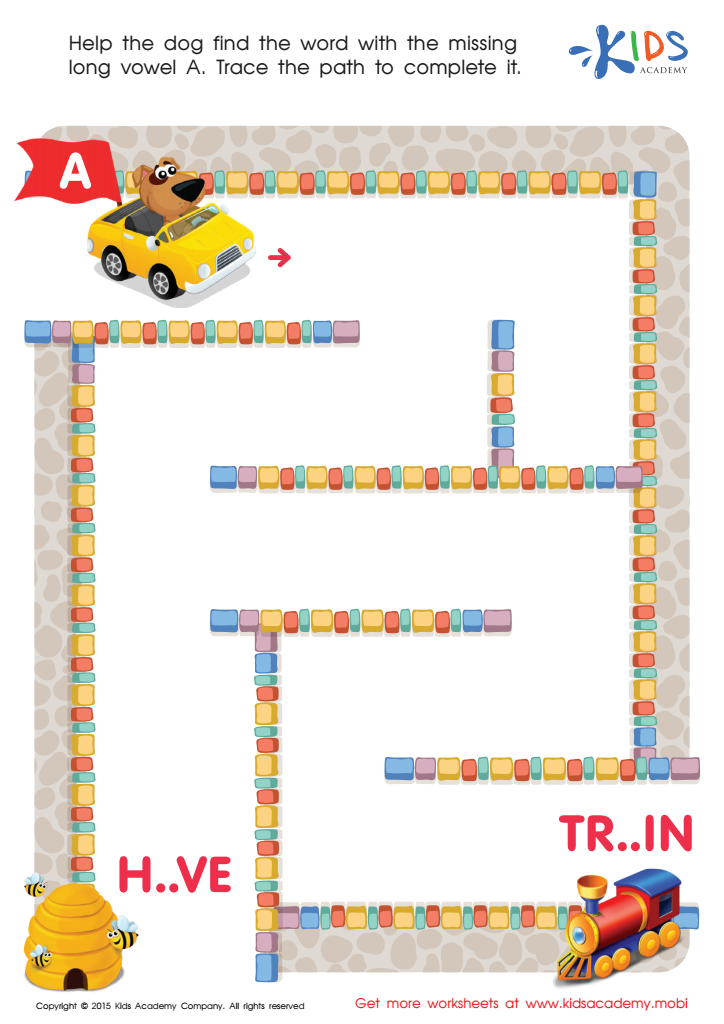

Long Vowel Sound A Worksheet
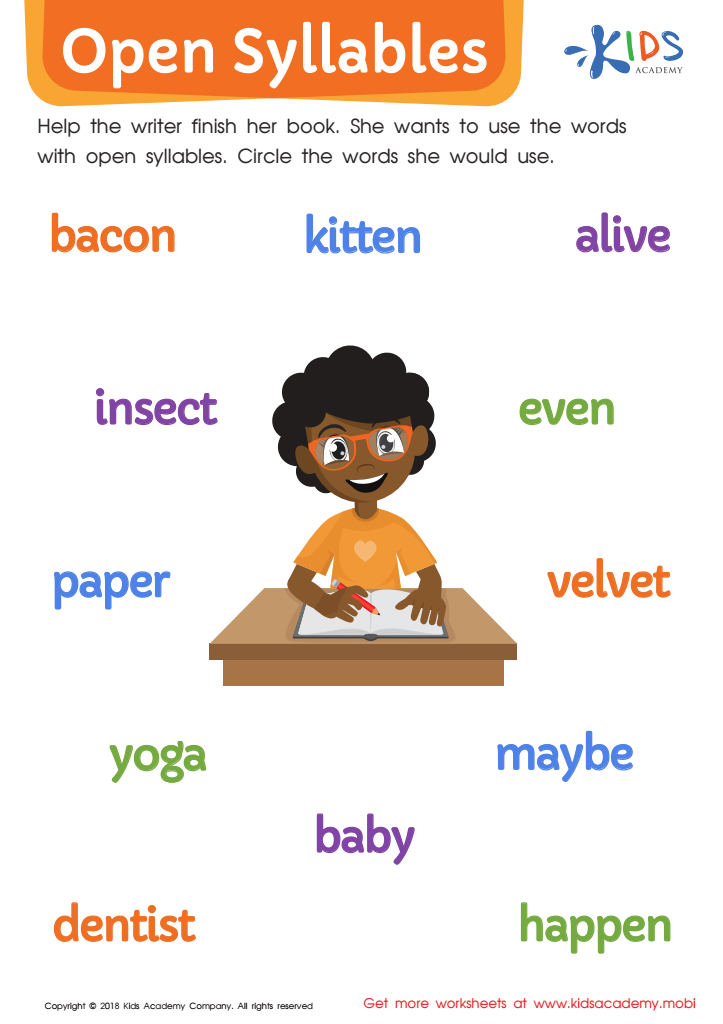

Open Syllables Worksheet


Phonics and Word Recognition: Assessment 1 Worksheet
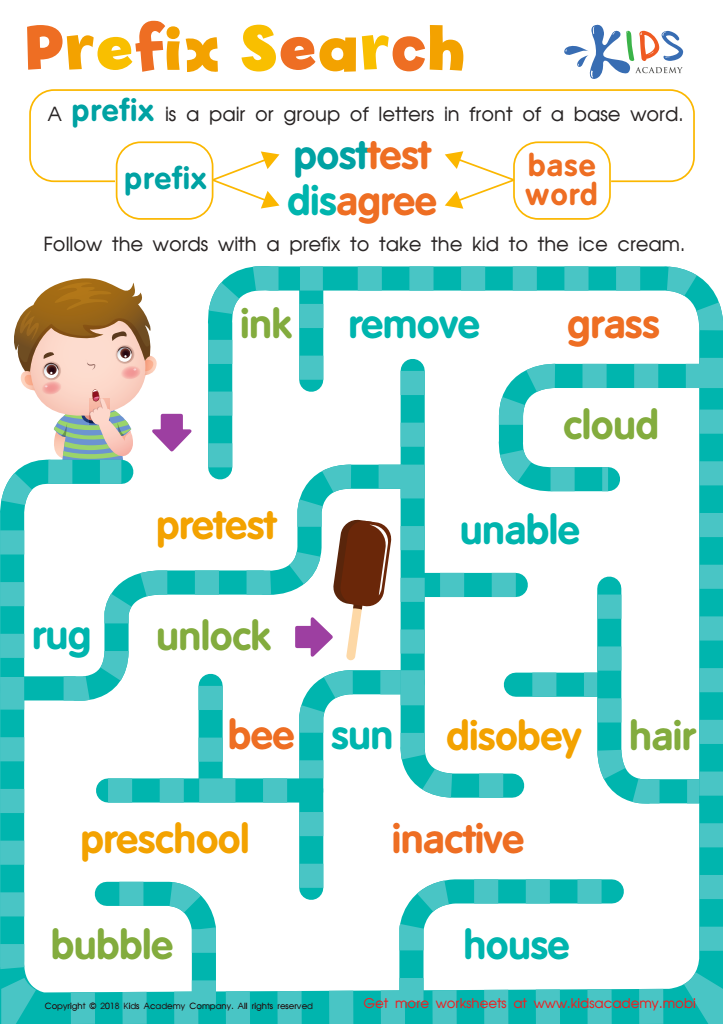

Reading: Prefix Search Worksheet
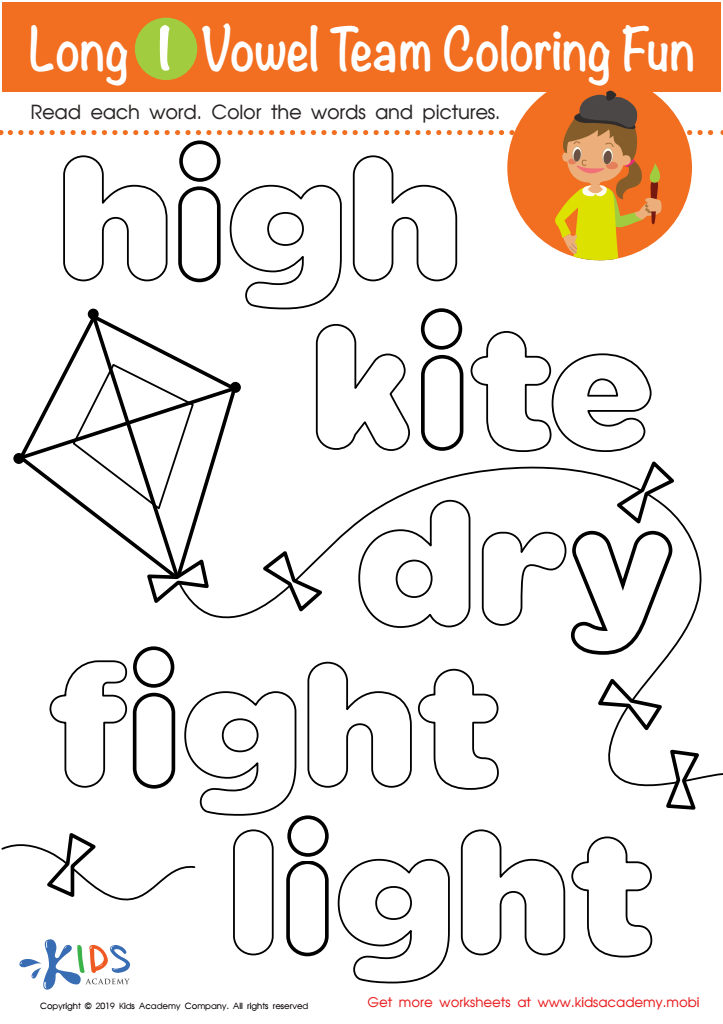

Long I Vowel Team Coloring Worksheet
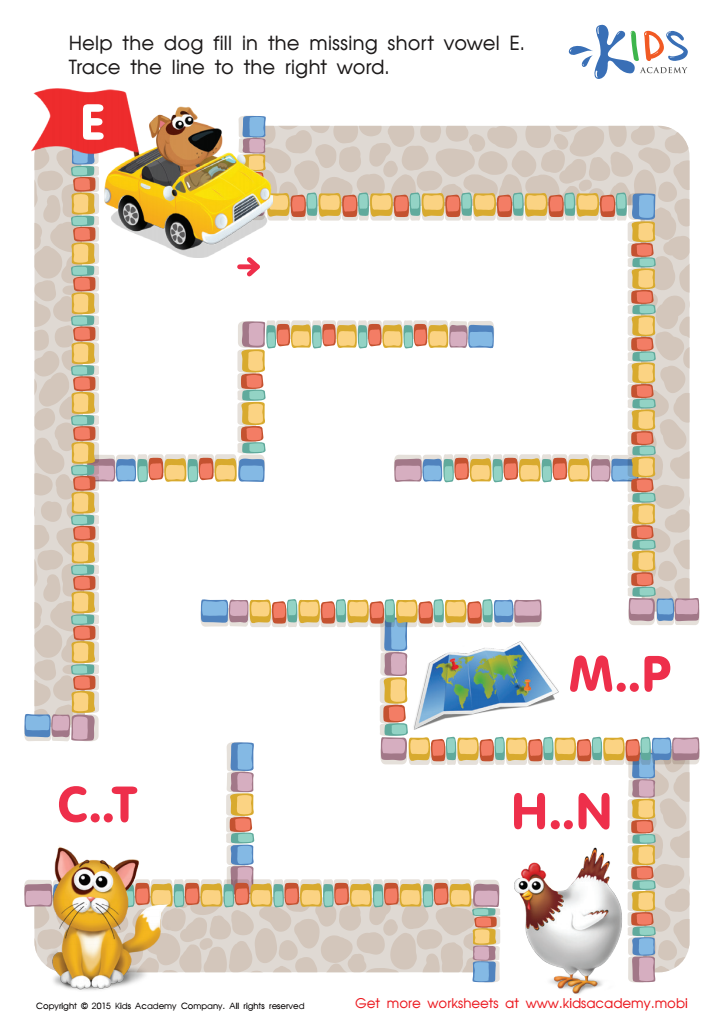

Short Vowel Sound E Worksheet


Phonics and Word Recognition: Assessment 1 Worksheet


Phonics and Word Recognition: Assessment 2 Worksheet
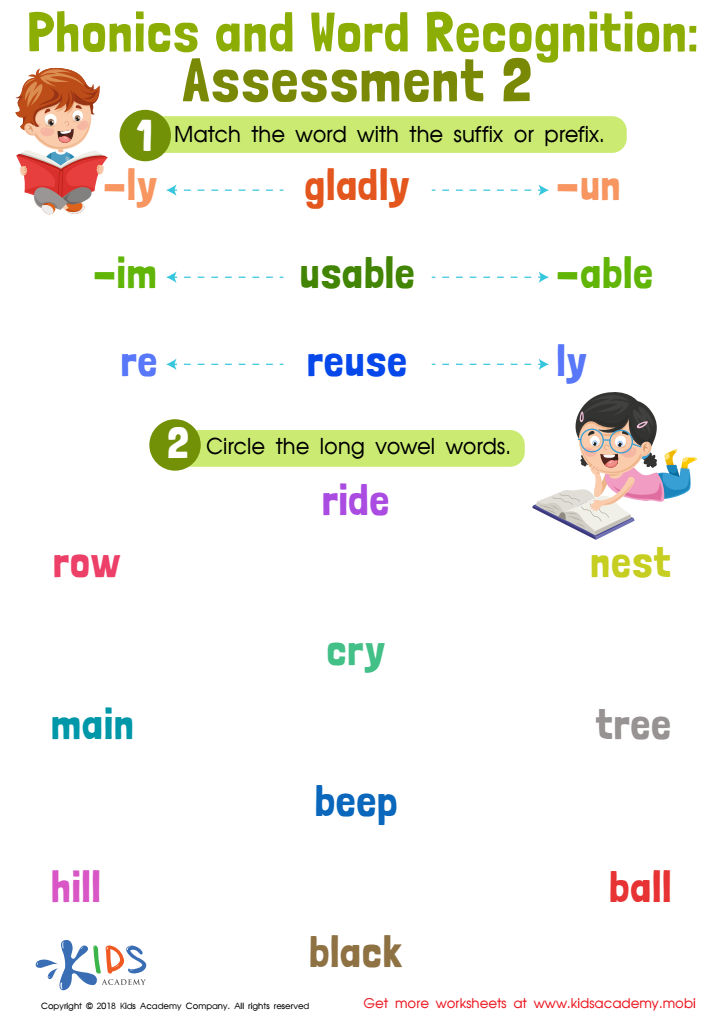

Phonics and Word Recognition: Assessment 2
Word identification and phonics are crucial for children aged 6-8 because they lay the foundation for literacy and language skills essential for academic success and everyday communication. At this age, children transition from recognizing letters and sounds to blending them and ultimately reading with fluency. By focusing on word identification and phonics, parents and teachers can help students build a strong vocabulary and develop the ability to decode unfamiliar words, thereby enhancing their reading comprehension.
Proficiency in phonics facilitates not only reading but also spelling and writing, which are interlinked areas of learning. Phonics instruction teaches children sound-letter correspondences, helping them to recognize patterns in words—skills that are vital for independent reading. When children grasp these basics early, they gain confidence and motivation to explore texts, expanding their knowledge across subjects.
Moreover, early word identification and phonics skills contribute to better communication skills, boosting students' ability to express themselves clearly both verbally and in writing. These skills are essential for effective learning across all subjects, allowing children to access a wider range of educational materials and engage more fully in classroom activities.
Overall, investing time and effort in word identification and phonics during these formative years supports long-term academic success and prepares children for a lifetime of learning and effective communication.
 Assign to My Students
Assign to My Students














